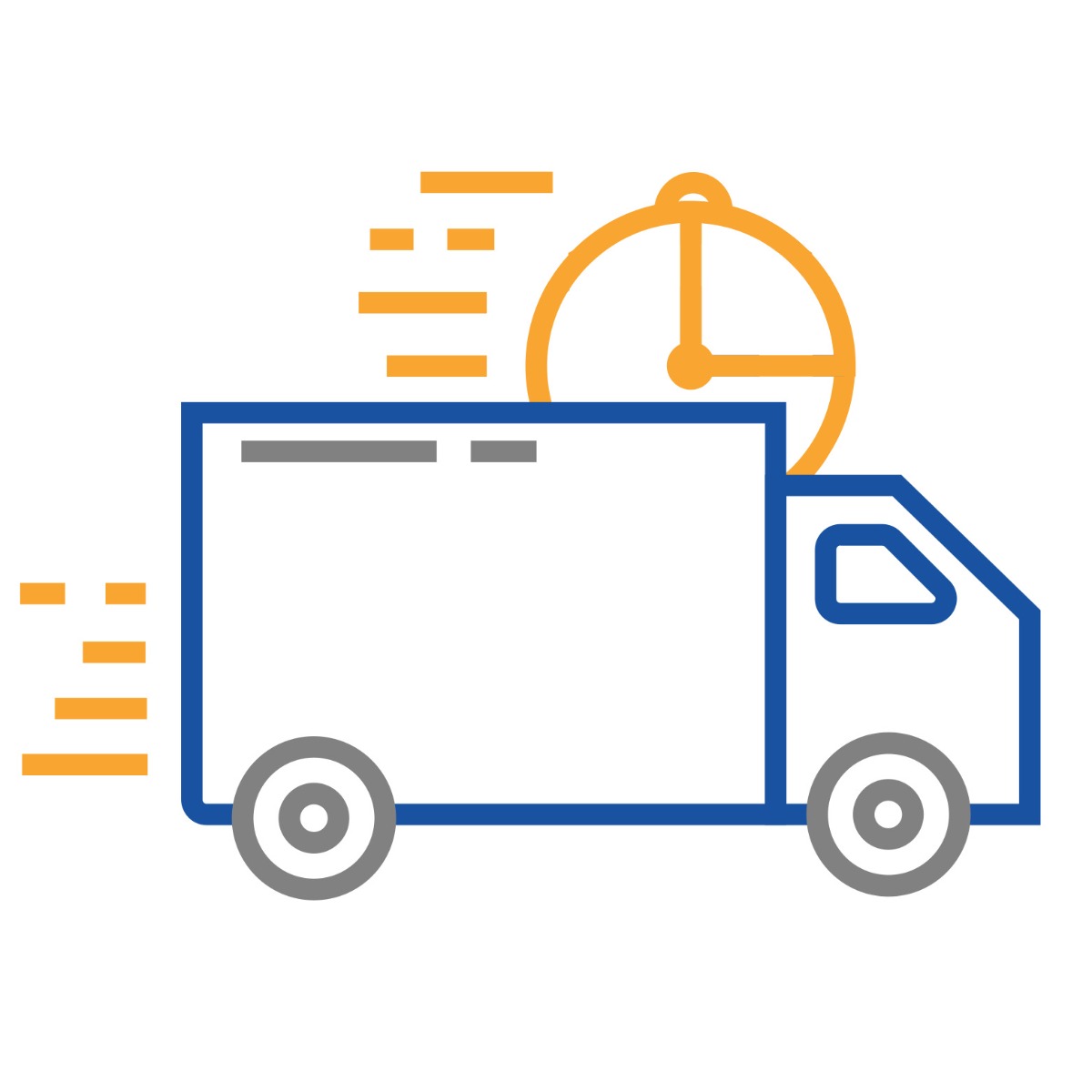Cybersecurity for Small Business: 11 Tips for Small Businesses

In the current digital landscape, cybersecurity stands out as a paramount concern for businesses across the board, with small businesses being particularly vulnerable. Their smaller scale, often coupled with limited resources, inadvertently paints them as lucrative targets for cybercriminals.
However, safeguarding your enterprise against digital threats need not be an overwhelming challenge. With the right strategies and knowledge, small businesses can effectively fortify their defenses against a myriad of cyber threats.
The following guide offers 11 practical and achievable tips, aimed at empowering small business owners and their teams. These recommendations are tailored to bolster cybersecurity for small business, ensuring a more secure and resilient digital environment.
1. Educate Your Employees About Cyber Threats

The cornerstone of robust cybersecurity is employee awareness. Cyber threats often enter through human error, such as clicking on a malicious link or inadvertently sharing sensitive information.
Therefore, educating your team on recognizing phishing scams, suspicious emails, and other cyber threats is crucial. Regular training sessions should be conducted to keep this knowledge fresh and up-to-date. Additionally, emphasizing the importance of maintaining strong passwords is vital.
By fostering a culture of cybersecurity awareness, employees become active participants in protecting the company, significantly reducing the likelihood of data breaches. These educational initiatives can transform your workforce into an informed, vigilant frontline defense against cyber intrusions.
2. Implement Strong Password Policies
In the digital world, a strong password is akin to a high-security lock. Encouraging or mandating the use of complex passwords is a fundamental step in safeguarding your business's digital assets. Passwords should be a mix of uppercase and lowercase letters, numbers, and special characters to enhance their complexity and resilience against brute-force attacks.
To add an extra layer of security, implementing multi-factor authentication (MFA) is highly recommended. MFA requires users to provide two or more verification factors to gain access to a resource, making unauthorized access significantly more challenging. By enforcing these password policies, small businesses can significantly reduce their vulnerability to cyber attacks, ensuring that their digital gates remain well-guarded.
3. Regularly Update and Patch Software

Keeping software up-to-date is not just about accessing the latest features; it’s a critical component of cybersecurity. Cybercriminals often exploit vulnerabilities in outdated software to gain unauthorized access to systems.
Regularly updating operating systems, antivirus programs, and all other software is essential in closing these security gaps. Wherever possible, enabling automatic updates can ensure that software remains current without relying on manual intervention.
Additionally, applying security patches as soon as they are released is vital. These patches are often designed to fix specific security vulnerabilities that have been discovered. Staying vigilant in maintaining software updates is a straightforward yet highly effective way to bolster your cybersecurity defenses.
4. Secure Your Wi-Fi Networks
A business’s Wi-Fi network is a gateway to its internal systems and, if left unprotected, can be an easy target for cyber attacks. To secure your Wi-Fi network, start by ensuring it is encrypted, which means that the data transmitted over your network is protected from eavesdroppers.
Additionally, setting your network to be hidden so it does not broadcast the network name (SSID) is a smart move. Change the default name and password of your router to something more complex and less predictable. Regularly updating the router's firmware is also crucial for security. By taking these steps, you prevent unauthorized access to your network, making it a less attractive target for potential attackers.
5. Use Antivirus and Anti-Malware Solutions

In the fight against cyber threats, antivirus and anti-malware software are indispensable tools. These solutions act as vigilant sentinels, scanning for and neutralizing potential threats before they can inflict damage.
Investing in reputable antivirus and anti-malware programs ensures that your business's devices are protected against a range of malicious software, including viruses, worms, trojans, and ransomware. These programs not only detect threats but also help to quarantine and remove them, thereby minimizing the risk of data compromise.
Regularly updating these solutions is crucial as new threats emerge constantly. By integrating antivirus and anti-malware software into your cybersecurity strategy, you create a resilient barrier that shields your business from the ever-evolving landscape of digital threats.
6. Regularly Backup Data
Regular data backups are a crucial safety net in cybersecurity strategy. In the unfortunate event of a cyberattack, such as ransomware, having up-to-date backups can mean the difference between a minor setback and a catastrophic loss. It's important to store these backups in multiple locations. This diversification can include physical storage devices and cloud services, providing redundancy.
Cloud backups offer the advantage of remote accessibility and resilience to physical disasters. Regularly testing these backups ensures they function correctly when needed. Establishing a routine backup schedule, ideally automated, ensures that your latest business data is always secure. By prioritizing regular data backups, businesses can safeguard against data loss and quickly recover from cyber incidents.
7. Limit Access to Sensitive Information

Access to sensitive information should be a privilege, not a default. Limiting access to crucial data minimizes the risk of internal threats and accidental breaches. Implementing strict access controls involves defining who can view, modify, and share company data. This practice, known as the principle of least privilege, ensures that employees have access only to the information necessary for their role.
Regular audits of access permissions can help maintain this control, ensuring that as roles change, access rights are appropriately adjusted. Additionally, using secure login protocols and tracking access logs are effective strategies to monitor and control data access, thus significantly enhancing the security of sensitive information in your business.
8. Secure Payment Gateways
For businesses handling transactions, securing payment gateways is of paramount importance. Cybercriminals often target payment systems to steal sensitive financial information. Utilizing trusted and secure payment services is essential. These services should comply with the Payment Card Industry Data Security Standard (PCI DSS) to ensure high-level security for transaction processing.
It’s also vital to avoid storing customer payment details on your systems unless absolutely necessary. If storage is required, ensure that the data is encrypted and access is strictly controlled. Regular audits and compliance checks can help maintain the integrity of the payment systems. By securing payment gateways, businesses not only protect their customers' financial information but also build trust and credibility.
9. Develop a Cybersecurity Plan

A formal cybersecurity plan acts as a blueprint for protecting your business from digital threats. This plan should outline your company's procedures and policies regarding cybersecurity. It includes guidelines for secure data handling, response protocols in the event of a breach, and regular security assessments.
The plan should be a living document, regularly reviewed and updated to adapt to new threats and technological changes. Employee training sessions should be a part of this plan, ensuring that all team members are aware of their role in maintaining cybersecurity. A well-structured cybersecurity plan not only helps in effectively managing and mitigating risks but also ensures a coordinated response in the event of a security incident like security camera systems.
10. Monitor Your Networks
Continuous monitoring of your business networks is key to early detection and mitigation of cyber threats. Regular network monitoring allows for the identification of unusual activity that could signify a breach, such as unexpected data transfers or unauthorized access attempts.
Utilizing network monitoring tools can automate this process, providing real-time alerts and detailed insights into network traffic. These tools can also assist in identifying vulnerabilities within the network that may need attention.
It’s important to regularly review and analyze the monitoring logs to understand normal network behavior and quickly spot anomalies. By maintaining vigilant network monitoring, businesses can proactively manage cybersecurity risks and respond swiftly to any potential threats.
11. Work with Cybersecurity Professionals

Engaging with cybersecurity professionals can provide an invaluable layer of defense for your business. These experts bring specialized knowledge and experience in identifying and mitigating digital threats.
For small businesses, this might involve consulting with cybersecurity firms for audits, risk assessments, and developing tailored security strategies. These professionals can also offer training for your staff, helping to elevate the overall cybersecurity awareness and preparedness within your company.
Additionally, in the event of a breach, cybersecurity professionals can offer critical incident response services to mitigate damage and guide recovery. Investing in expert advice, even if it’s periodic, can significantly strengthen your cybersecurity posture and provide peace of mind in an increasingly digital business landscape.
FAQs:
Q. What are the most common cybersecurity threats facing small businesses?
Small businesses often face threats like phishing attacks, malware, ransomware, and data breaches. Phishing involves deceptive emails or messages designed to trick employees into revealing sensitive information. Malware and ransomware are malicious software programs that can disrupt operations, steal data, or encrypt files for ransom. Data breaches occur when unauthorized individuals access company data, potentially leading to significant financial and reputational damage.
Q. How often should I update my cybersecurity policies and software?
Cybersecurity policies and software should be reviewed and updated regularly, at least bi-annually, or whenever there are significant changes in your business operations or the cybersecurity landscape. Software updates, particularly for security software and operating systems, should be done as soon as updates are available. This practice ensures that you are protected against the latest threats and vulnerabilities.
Q. Is it necessary for small businesses to have a dedicated IT security team?
While having a dedicated IT security team is ideal, it may not be feasible for all small businesses due to budget constraints. In such cases, it's important to train existing staff on basic cybersecurity practices and consider outsourcing critical cybersecurity tasks to specialized firms or consultants. This approach allows small businesses to maintain a high level of security without the need for full-time IT security personnel.
Q. Can using cloud services improve my business's cybersecurity?
Using cloud services can improve cybersecurity, as many cloud providers offer robust security measures that might be difficult for a small business to implement independently. These services often include data encryption, regular security updates, and backup solutions. However, it's crucial to choose reputable cloud providers and understand their security policies and the shared responsibility model for cloud security.
Conclusion:
Implementing these cybersecurity strategies significantly bolsters a small business's defenses in the digital realm. Remember, cybersecurity is a continuous process, not a one-time setup. It requires ongoing vigilance and adaptation to evolving threats.
Stay updated with the latest cyber threats and best practices, regularly revising your strategies to ensure robust protection. For an additional layer of security, consider Zetronix for top-quality surveillance gadgets. Their range of products is tailored to enhance small business security, offering a comprehensive approach to safeguarding your business. Visit Zetronix to explore their surveillance solutions, fortifying your business against both digital and physical threats.




